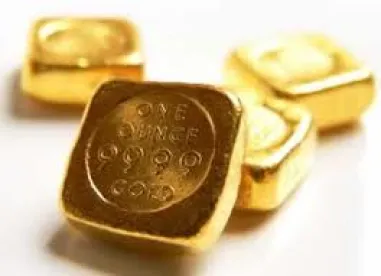Companies and industry groups have been working for over 3 years on investigation and due diligence processes to determine the source and chain of custody of the tin, tantalum, tungsten and gold (3TG) in their products. But, there could now be pressure to add to the list of conflict minerals. Compliance Week raised this question last week in its article “Is Cobalt the Next Conflict Mineral?”
In addition to the long-time focus on 3TG, NGOs and human rights advocates have also been concerned with cobalt mining in the Democratic Republic of Congo (DRC). Amnesty International’s recent report “This is What We Die For” includes a lengthy and detailed analysis of cobalt mining in the DRC and human rights conditions in those mining operations (including the health risks and dangers associated with artisanal cobalt mining and the prevalence of the worst forms of child labor in those operations). Amnesty International’s report concludes that governments should include cobalt in their required due diligence and reporting on mineral supply chains.
The report’s specific focus on worker safety and child labor is very different from previous DRC minerals-related reports that focused more on the financing of armed groups that use violence against civilians to control territory. If nothing else, this report demonstrates that the push for conflict minerals supply chain transparency can pivot to increased attention on child labor and worker safety in mining operations, which are also serious concerns in the mining of 3TG.
Could cobalt be added to the definition of “conflict minerals” under the SEC’s conflict minerals rule? It seems unlikely to occur as a result of new legislation. As currently configured, Congress does not appear to have the appetite for adding to the conflict minerals legislation at a time when there is genuine disagreement as to whether the conflict minerals rule is accomplishing its goals. But, the rule itself leaves open the possibility of adding to the list of conflict minerals. In the SEC’s release that accompanied the final conflict minerals rule, conflict minerals is defined as tin, tantalum, tungsten, gold “or any other minerals or their derivatives determined by the Secretary of State to be financing conflict in the Covered Countries.” The Amnesty International report could be intended to be support for such a determination by the US Secretary of State. A determination that cobalt is financing conflict in central Africa would be consistent with other actions by the Obama Administration regarding human rights and the mineral trade in the DRC.
Of course, adding cobalt to the definition of conflict minerals would impact companies that are working to gather sourcing information about the 3TG in their products. And, those companies that are now able to (or soon hope to) identify products as “DRC conflict free” would suffer a set-back as they would need to undertake a whole new line of investigation on cobalt and would not be in a position to claim “DRC conflict free” status until that is accomplished.
Companies in the electronics industry have invested significant time and effort in certifying the smelters and refiners of the 3TG in their products, and the electronics industry is widely recognized as the market leader for its accomplishments in increasing supply chain transparency. Notably, earlier this month, Intel announced that it is now manufacturing “conflict-free” microprocessors. And, the company went on to commit that its broader product base would also be “conflict-free.” But, adding cobalt to the SEC’s definition of conflict minerals would mean starting over, at least with respect to cobalt in Intel’s supply chain. And, adding cobalt to the list of conflict minerals could jeopardize the momentum finally being gained in the education of suppliers and the public about conflict minerals. Intel’s recent survey of millenials’ attitudes towards conflict minerals indicated that a surprising number of people still do not fully understand the conflict minerals issue or what efforts industry has undertaken toward responsible minerals sourcing. Naming cobalt a conflict mineral could create more confusion and would require companies who previously claimed “DRC conflict free” status to amend that claim until they can confirm that status as to cobalt.
But, even if cobalt is not added to the SEC’s definition of conflict minerals, NGOs could pressure companies to include cobalt in their disclosures. NGOs have already made it clear that they expect companies to do more and disclose more than is required by the conflict minerals rule. They urge non-reporting companies to develop policies and publish information about their supply chains. They also urge companies to take “good practice” steps that are over and above what is required by the rule. NGOs have gained power and influence around the conflict minerals issue as they have scored company supply chain disclosures and called out industries and specific companies as laggards. By doing so, they have provided potential plaintiffs with a road map to legal claims. And as “consensus” develops around additional issues of concern, NGOs are likely to pressure companies to address these issues in their supply chain investigations and to include them in their disclosures. As we have seen in the last six months as companies are facing class action consumer fraud claims based on their supply chain disclosures, more supply chain transparency disclosure means more risk.
The increased focus on cobalt illustrates why companies are well advised to develop due diligence processes and procedures that can be built upon and that address the risks in their own individual supply chains — based on their geographies, industries and products and not just based on the specifics of current government regulation.




 />i
/>i

